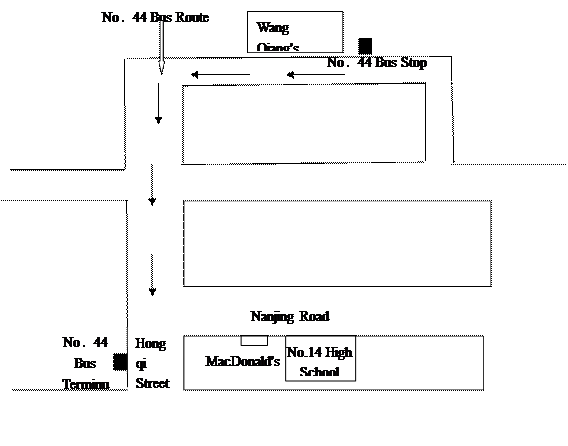题目内容
Task-based reading 任务型阅读
请认真阅读下面短文,并根据所读内容在文章后图表中的空格里填入最恰当的单词。注意:每空不超过1个单词。
For centuries people dreamed of going into space. This dream began to seem possible when high-flying rockets were built in the early 1900s.
In 1903 a Russian teacher named Konstantin Tsiolkovsky figured out how to use rockets for space travel. His plan was the first one in rocket science to use correct scientific calculation. About 30 years later, a U.S. scientist named Robert Goddard built the first rockets that could reach high altitudes. During World War II, German scientists built large rockets that could travel very far and carry dangerous explosives. After the war, scientists from Germany went to the United States and the Soviet Union to help those countries build space rockets.
These two countries were soon racing to get to space first. Each of these countries wanted to prove that it was stronger and more advanced than the other one. Both countries also had powerful bombs. People in the United States were worried when the Soviets were first to launch a space satellite, which was called Sputnik. The Soviets were also first to send a person into space. Yury Gagarin orbited the earth in the Vostok I spaceship in 1961.
The US government set a goal for its space program to be the first country to put a person on the Moon. The U.S. space program built a series of Apollo spaceship. These vehicles were powered by huge Saturn 5 rockets. In 1969 Apollo II took three men to the moon successfully. Nell Armstrong became the first person to walk on the Moon.
The Soviets may have lost the race to fly people to the Moon, but they built the first space station in 1971. The United States also built a space station. The space stations allowed people to live and work in space. Then the Soviet Union and the United States cooperated to hook two spaceships together in space. This action ended the "space race". Today a much larger space station, built by several countries together, orbits Earth.
Another new way to go to space is by space shuttle. A space shuttle, first made in the United States in 1981, looks like an airplane. Astronauts who fly spaceships have used shuttles to help put satellites into space.
| History of space travel | ||
| Time | Events | Information concerned |
| Early 1900s | High-flying rockets were built. | It made the ancient dream of going to space possible to come 66) ▲ |
| 1903 | Konstantin Tsiolkovsky (67) ▲ out a way to use rockets for space travel. | He planned to put correct scientific calculation to use in rocket science. |
| Around (68) ▲ | Robert Goddard built new rockets. | The rockets could fly very (69) ▲ in the sky. |
| During and after World War II | German scientists built large rockets that could travel very far and carry dangerous explosives. | Germany was ahead of all the other countries in building space rockets and later it (70) ▲ the Soviet Union and the United States |
| The Soviet Union and the United States competed to get to space first. | The Soviet Union became the (71) ▲ of the competition when it launched the first satellite and sent the first astronaut into space. | |
| 1969 | The United States was (72) ▲ in putting a person on the moon. | In one way, it (73) ▲ the Soviet Union by becoming the first country to fly people to the moon. |
| 1970s | The Soviets built the first space station and was soon followed by Americans. And they finally ended the "space race" by (74) ▲ | Astronauts can live and work in space stations. |
| 1980s-- | Space shuttles are used as new vehicles for space (75) ▲ . | Shuttles are also used to help put satellites into space. |
66. true
67. figured
68. 1933
69. high
70. helped
71. winner
72. successful
73. beat/defeated
74. cooperation/cooperating
75. travel
解析:
略

 亮点激活精编提优100分大试卷系列答案
亮点激活精编提优100分大试卷系列答案
Section B Task-based reading 10%
Directions:The people below are all looking for a place for different purposes. After the description of these people, there is information about six places A-F. Decide which place would be most suitable for the person mentioned in questions 61-65 and then mark the correct (A-F) on your answer sheet. There is one extra paragraph about one place which you do not need to use.
| A.Literature Camp: A group of famous writers will be present at the camp, offering studies in the development of Chinese literature from 1919 to 1949.You will visit seven museums relating to contemporary (当代的) literature. |
| B.Exciting Holiday Camp:You can enjoy yourself climbing, sailing and swimming taught by trained adults in a camp near a lake. All meals are provided. The camp is open throughout June, July and August, and each session lasts for two weeks. It aims at boys and girls aged 9 to 14. |
| C.Seagull (海鸥) Sailing Holidays: Suitable for all ages. You can learn to sail in three weeks. We offer teaching from qualified staff. Flats or apartments are provided in a beautiful, quiet fishing village. Breakfast, dinner and a packed lunch are included in the price of the holiday. |
| D.Grace Island Hotel: Short stays (3 —4 days) available. Famous for its excellent cooking, the hotel provides opportunities to relax and enjoy the heated swimming pool, beautiful music and top class bars and restaurants, with entertainment every night. All rooms have a sea view. |
F. History Tours: We offer tours to Egypt with guides. The tour includes lectures about the history of Egypt and visits to museums. Travel by coach or riverboat. Accommodation in top hotels. Tours last 2 — 3 weeks.
61.____ Mike and Susan are university students. They want to take a holiday this summer, but they don’t have much money. They are dreaming of going to France.
62.____ Bill Smith is a businessman. He is tired and needs a rest, but he does not have much time for a holiday. He wants to get away from city life and stay somewhere near the sea. He is interested in cooking.
63.____ Susan has three weeks to spend on holiday. She doesn’t like sports, and she doesn’t like relaxing on the beach either. She enjoys sightseeing and learning about foreign countries’ history.
64. ____Kelly studies Chinese in Beijing. She is interested in Chinese literature. She has some free time and would like to attend some kind of activity to learn about Chinese modern literature.
65. ____Mr. and Mrs. Wilson and their three sons like outdoor holidays. They have never tried sailing, but they would like to learn. During their three-week holiday, they want to enjoy themselves in a beautiful, quiet fishing village.
Task-based reading 任务型阅读
请认真阅读下面短文,并根据所读内容在文章后图表中的空格里填入最恰当的单词。注意:每空不超过1个单词。
For centuries people dreamed of going into space. This dream began to seem possible when high-flying rockets were built in the early 1900s.
In 1903 a Russian teacher named Konstantin Tsiolkovsky figured out how to use rockets for space travel. His plan was the first one in rocket science to use correct scientific calculation. About 30 years later, a U.S. scientist named Robert Goddard built the first rockets that could reach high altitudes. During World War II, German scientists built large rockets that could travel very far and carry dangerous explosives. After the war, scientists from Germany went to the United States and the Soviet Union to help those countries build space rockets.
These two countries were soon racing to get to space first. Each of these countries wanted to prove that it was stronger and more advanced than the other one. Both countries also had powerful bombs. People in the United States were worried when the Soviets were first to launch a space satellite, which was called Sputnik. The Soviets were also first to send a person into space. Yury Gagarin orbited the earth in the Vostok I spaceship in 1961.
The US government set a goal for its space program to be the first country to put a person on the Moon. The U.S. space program built a series of Apollo spaceship. These vehicles were powered by huge Saturn 5 rockets. In 1969 Apollo II took three men to the moon successfully. Nell Armstrong became the first person to walk on the Moon.
The Soviets may have lost the race to fly people to the Moon, but they built the first space station in 1971. The United States also built a space station. The space stations allowed people to live and work in space. Then the Soviet Union and the United States cooperated to hook two spaceships together in space. This action ended the "space race". Today a much larger space station, built by several countries together, orbits Earth.
Another new way to go to space is by space shuttle. A space shuttle, first made in the United States in 1981, looks like an airplane. Astronauts who fly spaceships have used shuttles to help put satellites into space.
|
History of space travel |
||
|
Time |
Events |
Information concerned |
|
Early 1900s |
High-flying rockets were built. |
It made the ancient dream of going to space possible to come 66) ▲ |
|
1903 |
Konstantin Tsiolkovsky (67) ▲ out a way to use rockets for space travel. |
He planned to put correct scientific calculation to use in rocket science. |
|
Around (68) ▲ |
Robert Goddard built new rockets. |
The rockets could fly very (69) ▲ in the sky. |
|
During and after World War II |
German scientists built large rockets that could travel very far and carry dangerous explosives. |
Germany was ahead of all the other countries in building space rockets and later it (70) ▲ the Soviet Union and the United States |
|
|
The Soviet Union and the United States competed to get to space first. |
The Soviet Union became the (71) ▲ of the competition when it launched the first satellite and sent the first astronaut into space. |
|
1969 |
The United States was (72) ▲ in putting a person on the moon. |
In one way, it (73) ▲ the Soviet Union by becoming the first country to fly people to the moon. |
|
1970s |
The Soviets built the first space station and was soon followed by Americans. And they finally ended the "space race" by (74) ▲ |
Astronauts can live and work in space stations. |
|
1980s-- |
Space shuttles are used as new vehicles for space (75) ▲ . |
Shuttles are also used to help put satellites into space. |


